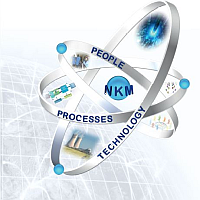Speaker
Mr
Jorge TANARRO COLODRON
(European Commission)
Description
The Storage of Thermal REactor Safety Analysis data (STRESA) is an online information system that contains three technical databases: - European Nuclear Research Facilities, open to all online visitors. - Nuclear Experiments, available only to registered users. - Results Data, being the core content of the information system, its availability depends on the role and organisation of each user.
Its main purpose is to facilitate the exchange of experimental data produced by large Euratom funded scientific projects addressing severe accidents, providing at the same time a secure repository for this information. Due to its purpose and architecture, it has become an important asset for networks of excellence as SARNET or NUGENIA.
The Severe Accident Research NETwork of Excellence (SARNET) was set up in 2004 under the aegis of the research Euratom Framework Programmes to study severe accidents in water-cooled nuclear power plants. Coordinated by the IRSN, SARNET unites 43 organizations involved in research on nuclear reactor safety in 18 European countries plus the USA, Canada, South Korea and India. In 2013, SARNET became fully integrated in the Technical Area N°2(TA2), named “Severe accidents” of NUGENIA association, devoted to R&D on fission technology of Generation II and III.
| Country or International Organization | European Commission |
|---|
Author
Mr
Jorge TANARRO COLODRON
(European Commission)

